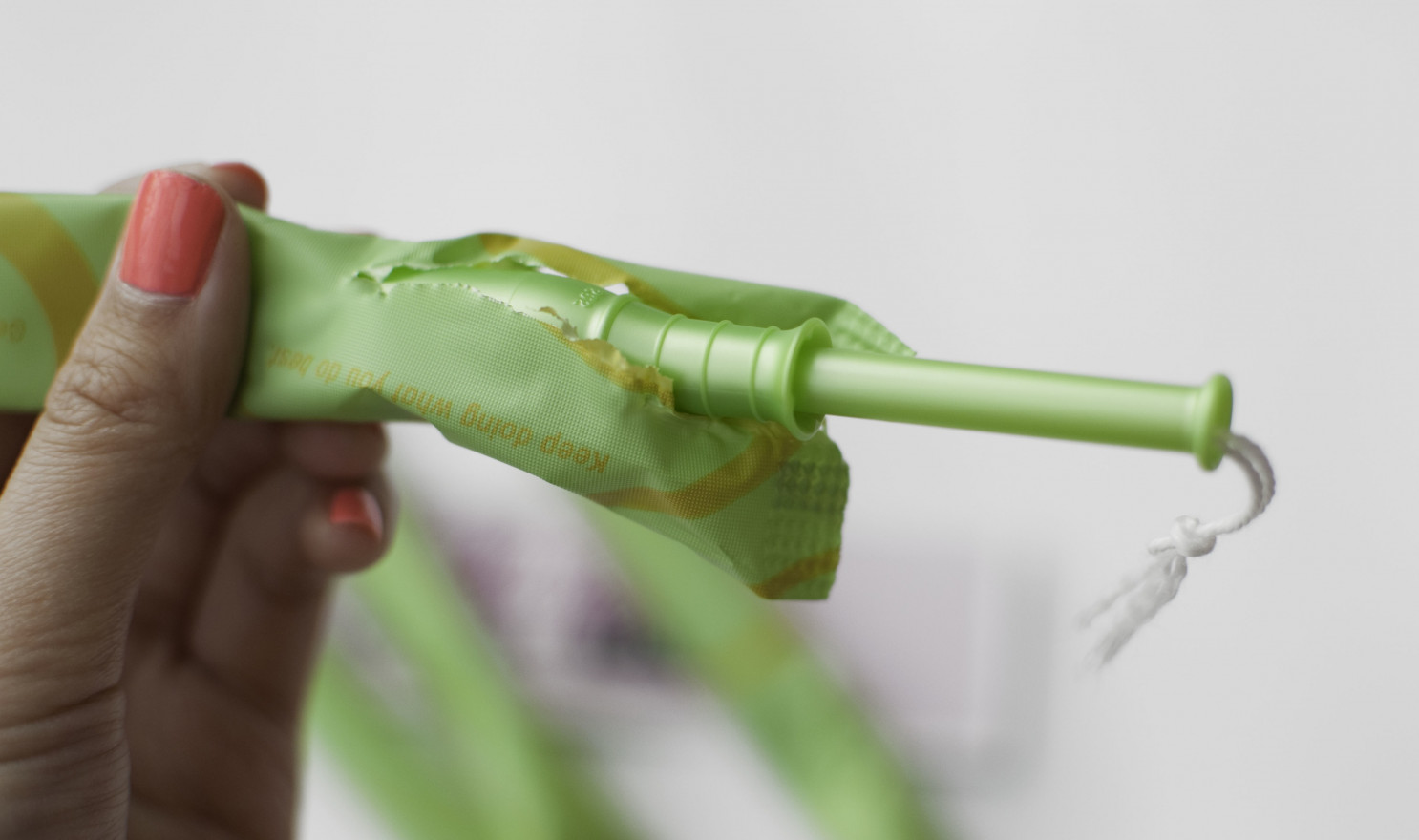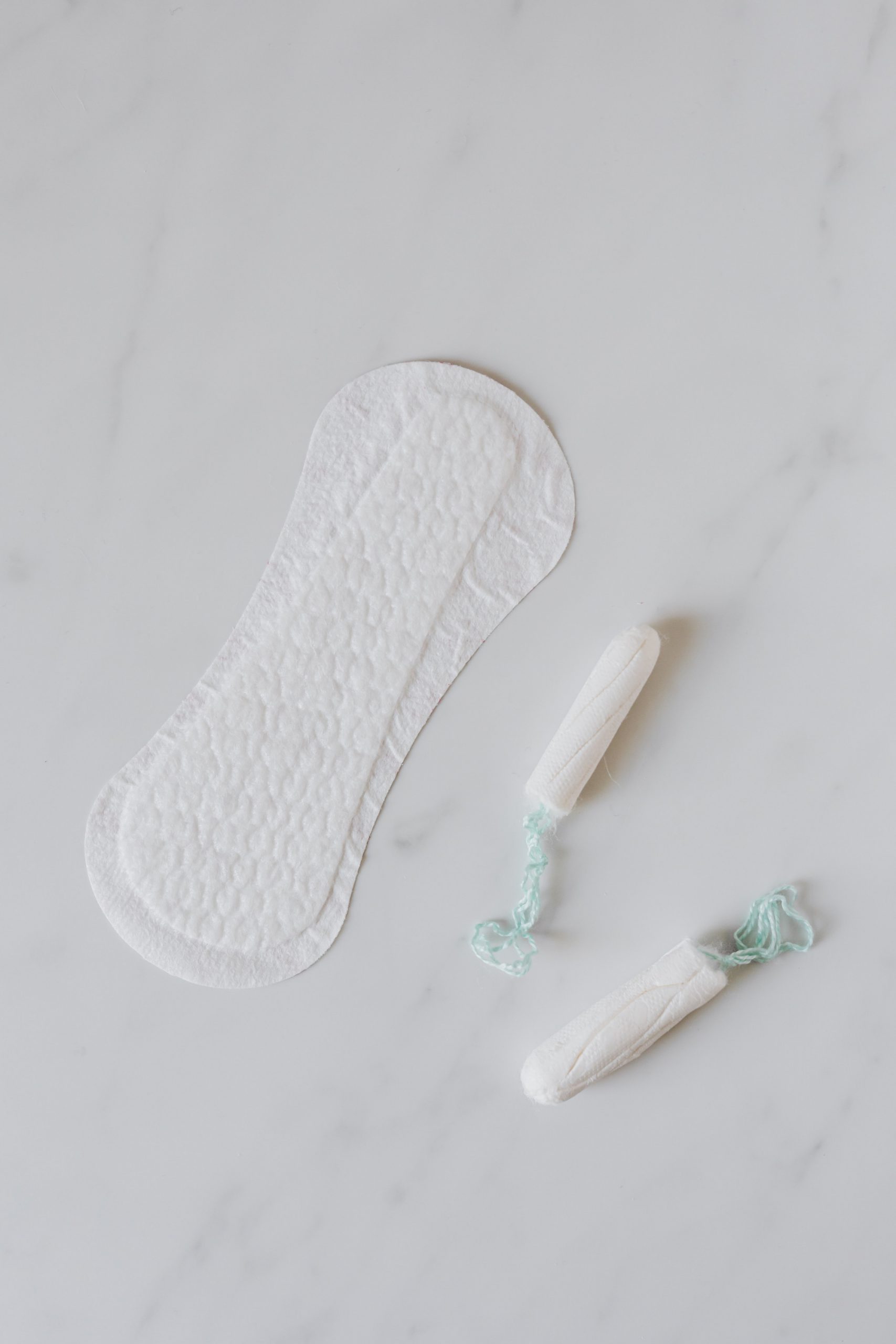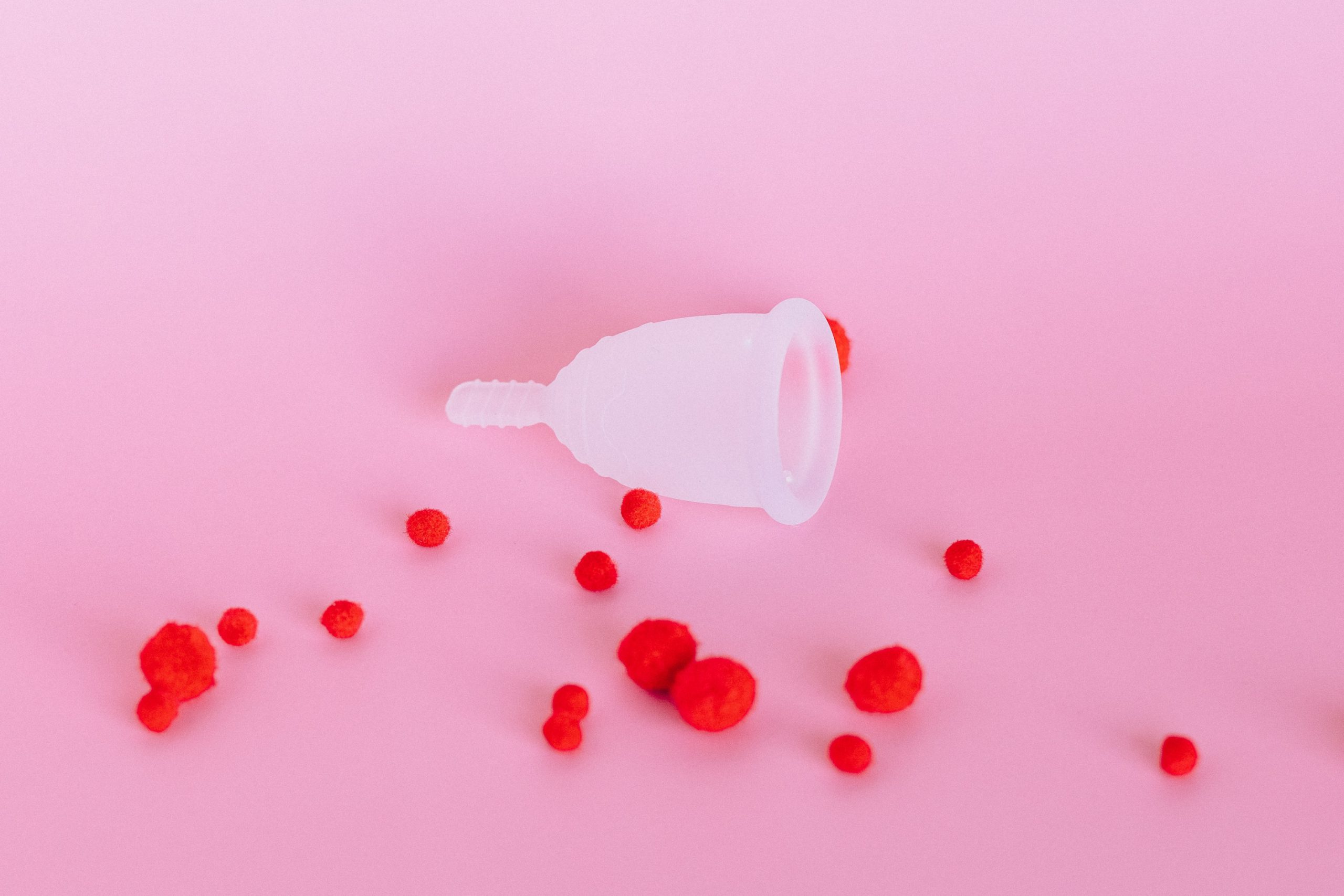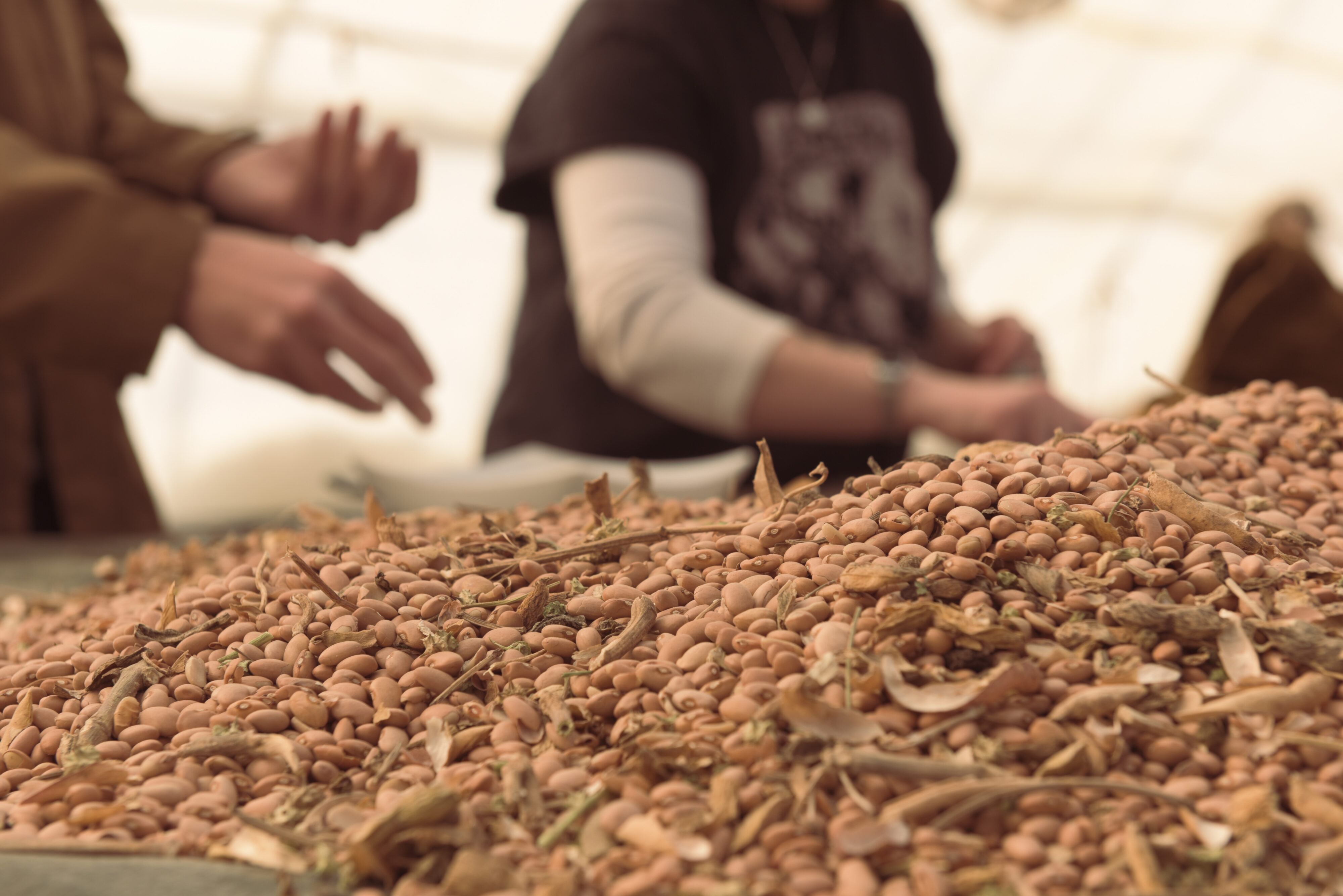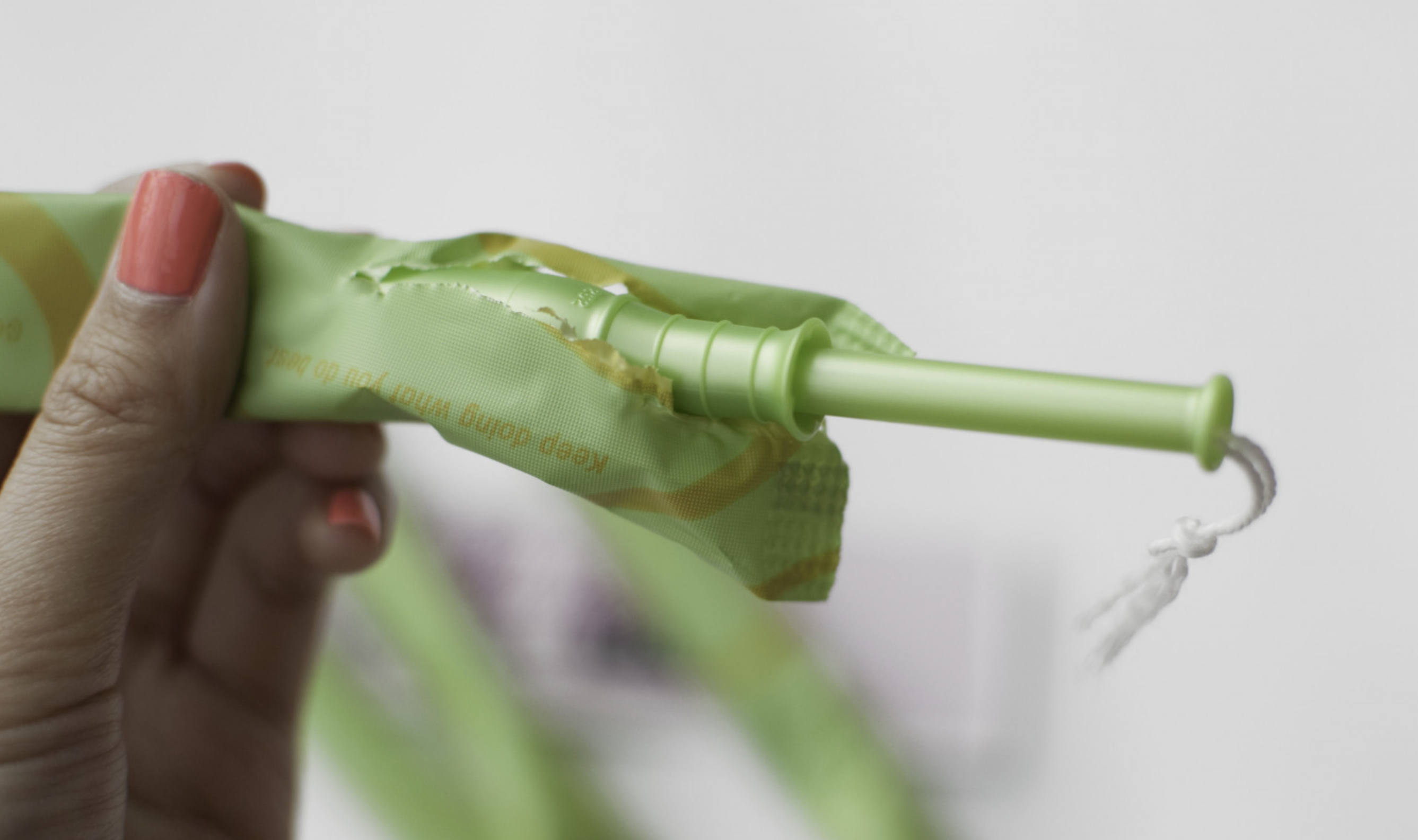
5 brands that are leading the way toward sustainable periods

What is colorful, scented, and plastic all over? A lot of pads and tampons are. At least the ones I, and most of my friends, have used for years.
Since I was a teenager, getting my period has meant heading to CVS to replenish a stock of products from name brands like Tampax or Playtex and then, just as quickly, tossing them in the trash.
I am not alone. According to data from the Harvard Business School, on average, users discard 11,000 tampons throughout their lifetime, which all adds up to 331 pounds of waste.
Traditional period care products are like trifle cakes of plastic. It is in product wrappers, applicators, receptacles for disposal, and even embedded in the product itself in some cases. Menstrual pads specifically can be made up of 90% plastic. Period care products cannot be recycled so the majority of this waste ends up in landfills.
In the conversation surrounding sustainability, single-use plastics are normally at the forefront. Reusable grocery bags and paper straws are championed as small steps you can take to reduce your impact. But, the impact of period products is talked about far less.
The stigma surrounding periods for generations has contributed to both the impacts of menstrual waste and the fact that they are only recently coming to light. As an example, experts point to the extra plastic wrappers that tampons have, designed specifically to open without making any noise and keep your period a secret from (heaven forbid!) your stall-neighbor in a public restroom.
Luckily, we are beginning to shed the stigma around menstruation and shine a light on period care sustainability. New companies have stepped up to give eco-conscious menstruators some options. Here are five brands that take five unique approaches to make periods greener…
1. Natracare
Natracare gets the very first spot on this list because it created the world’s first-ever organic cotton tampon.
Statistics from their website explain how one pack of pads is equivalent in plastic content to four grocery bags. Their mission since founding in 1989 has been to prevent this kind of waste by providing pads and tampons that are made from sustainably sourced materials. All of their products became completely compostable and plastic-free in 1995.
2. Dame
Dame, a U.K. based company whose motto is “Bleed Red, Think Green,” created the first-ever reusable tampon applicator. Their product is ideal for the user who is attached to tampons and the comfort of a smooth applicator, but not to plastic waste. Dame’s reusable applicator can be loaded with a tampon, used, and then rinsed off and stored until you need it again.
A 2020 impact report published on their website claims their products have already saved 2.5 million plastic applicators from being thrown in the trash. As a bonus, the company boasts a carbon-negative certification. For every one metric ton of carbon Dame emits, two more metric tons are offset.
3. Aisle
If you purchase pads regularly, a reusable cloth option may be the best bet to become more sustainable. Aisle (formerly known as Luna Pads) is a company that sells a variety of period products including cloth pads. According to their website, thanks to the reusable Aisle products purchased so far, more than 639,000 pounds of carbon which would have been used to produce disposable period products, have been avoided. Aisle calculated this number using GreenStory, a company focused on analyzing sustainability.
4. OrganiCup
Yet another approach to the green period problem, is replacing tampons and pads altogether with a menstrual cup. According to Organicup’s website, their menstrual cup model lasts for up to two years. On average OrganiCup calculated that this is equivalent to the use and disposal of 528 pads or tampons.
5. Thinx
A final option, that eliminates the need for pads and any type of insertion, is period underwear. Thinx is one company that has developed underpants designed to absorb period blood. Their underwear options range from light absorbency to a super absorbency option that can hold up to 36 mL of blood, the equivalent of four regular tampons.















